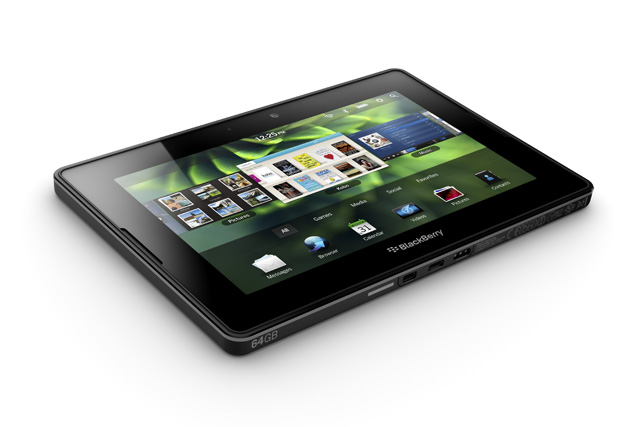On 20 June, Research in Motion’s BlackBerry Playbook will become the first non-Android competitor to enter the Australian market and challenge the dominance of Apple’s flagship iPad tablet. But will the PlayBook be a fast-seller or a failure? We asked several industry experts for their opinion.
According to the managing director of Optus’ Business division, Rob Parcell, there is still a desire from businesses to see the sort of security-conscious IT solutions that they understand. Despite the mass market popularity of the iPhone and Android handsets, there’s a huge BlackBerry install base out there in the large and small business world, and the smartphone is still seen by many as being inherently more secure and manageable than rival platforms.
In the Federal Government, for example, the Defence Signals Directorate has not certified most breeds of smartphones to any security level as being safe for use by government workers. The agency’s Evaluated Products List — which aids in government purchasing of devices — lists only the BlackBerry and Windows Mobile operating systems as being certified for use.
This may lead to increased interest in the PlayBook, according to Parcell. “They’re trading off the BlackBerry there,” Parcell said at a press event in Sydney today. However, the Optus executive said ultimately he didn’t believe Optus was yet in a position to predict how the PlayBook would do in Australia, with the tablet market still forming.
In general, Optus Business director of marketing & strategy Scott Mason said up until now, organisations had been faced with a wave of tablets being informally brought into their workplaces by staff — usually the iPad.
However, he noted the range of tablets available was increasing, adding that chief information officers had a lot of faith in platforms such as Android — with recent Optus research predicting that most organisations saw their companies issuing tablets to workers over the next three to five years. Those sectors more concerned with security, such as in government and financial services, were more interested in the PlayBook, he said.
Foad Fadaghi, research director at analyst house Telsyte, was more bullish on the PlayBook’s uptake.
For starters, the analyst said, the BlackBerry tablet was a differentiated product in what was quite a “noisy” existing Android marketplace, with a number of similar tablets hitting Australia in mid-2011, including the Motorola Xoom, the Samsung Galaxy Tab 10.1, the Acer Iconia Tab and more.
The PlayBook has a smaller form factor, at 7″, as opposed to the 10″ Android tablets, which might prove attractive to women, Fadaghi said, with early indications being from the US that women were more likely to prefer a more portable device. In addition, women had already proven to be strong adopters of the BlackBerry line comparatively.
Furthermore, Fadaghi noted that the PlayBook was selling overall at a reduced price (starting at $579 in Australia) compared with the market-leading iPad. This was important, the analyst said, as the Android manufacturers had typically priced their devices at the same price point as the iPad or even higher.
The build quality of the PlayBook was good, he added, and RIM plans to build Android app support into the PlayBook’s software, meaning consumers could take advantage of native BlackBerry apps as well as not missing out on the growing Android ecosystem. That could also allow RIM to keep the price low, he said, as — unlike Google’s Android partners but like Apple — RIM itself would make a cut of BlackBerry apps sold through its own app store.
In addition, Fadaghi pointed to the fact that many organisations already had existing BlackBerry infrastructure and were comfortable with the manufacturer. This, combined with a broader consumer marketing push from RIM, might see a synergy between the way in which businesses wanted to operate, as well as demand from the workers’ side.
“Having said that, we don’t think they’ll see massive amounts sold, like the iPad,” said Fadaghi. But the analyst believed RIM would see reasonably good prospects for the PlayBook — and even more so when the 3G version of the tablet was eventually released.
Image credit: Research in Motion


It really needs a 3G version to be useful.
I’m a bit torn on that aspect personally — as I’m not sure how many 3G connections I want to pay for; I already have a 3G USB dongle and an iPhone. Surely tethering will be the way of the future for many tablets … ?
Fair point. I have to say though I am so glad I changed my iPad2 order to the 3G version. It has been very convenient. Plus when I travel overseas I can simply order a local pre-paid micro-sim and pop it in. Saves having multiple 3G devices.
Tethering is OK, but my ideal would be for a telco to introduce a shared data plan that incorporates a single pool of data that many devices can access.
Shhh James, that is too much like common sense and might make it too easy for the layman to compare rival packages! We couldn’t have that!
From memory Optus has done something similar to this for small businesses — but I definitely agree there needs to be more done with this. If I had a Telstra-connected iPad 3G, I would then be paying for three Telstra data quotas and three Telstra connections per month — iPad, iPhone, and USB dongle. It’s too much. And telcos can easily track what customers use in a wireless world.
Comments are closed.